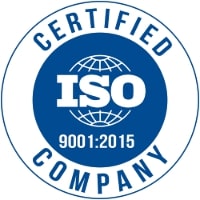Machinery and Electrical Equipment Safety (Omnibus Technical Regulation) Order, 2024

In August 2024, the Ministry of Heavy
Industry introduced a comprehensive regulation known as the Machinery and Electrical Equipment Safety
(Omnibus Technical Regulation) Order, 2024. This regulation is a
significant step forward in aligning Indian safety standards with international
practices, ensuring machinery and electrical equipment manufactured or sold in
India meet stringent safety requirements. Below is a detailed breakdown of the
regulation and what it entails.
What is the
Machinery and Electrical Equipment Safety (Omnibus Technical Regulation) Order,
2024?
The Machinery and Electrical Equipment Safety (Omnibus Technical
Regulation) Order, 2024 is a new set of safety standards introduced to
improve the quality and safety of machines and electrical equipment in India.
This regulation aims to protect consumers, workers, and the environment by
ensuring that these products comply with high safety standards. It is part of
the government's effort to enhance product reliability and reduce risks
associated with the operation of machinery and electrical devices.
Key Highlights
of the Order
- Title and
Implementation Timeline
The Order, officially known as the Machinery and Electrical Equipment Safety (Omnibus Technical Regulation) Order, 2024, is scheduled to come into effect one year after its publication in the Official Gazette. This means that manufacturers, importers, and businesses will have until August 2025 to comply with the new standards.
- Scope of Application
This Order covers a wide range of machinery and electrical equipment, including their assemblies, sub-assemblies, and components. However, any machinery or electrical equipment already covered under other existing regulations under the Bureau of Indian Standards Act, 2016, will not fall under this Order's scope. This ensures there is no overlap with existing standards and that each regulation focuses on specific product categories.
Conformity to
Safety Standards
One of the core elements of the Order
is the requirement for machines and electrical equipment to meet strict safety
standards:
● Type A Standards: These are general
safety standards applicable to a wide range of machinery. The primary standard
referenced here is IS 16819:2018/ISO
12100:2010, which focuses on the principles of safe machinery design, risk
assessment, and risk reduction.
● Type B Standards: These standards are
specific to certain safety aspects like machinery ergonomics or protective
devices. These are outlined in the second
Schedule of the Order.
● Type C Standards: These standards are
detailed and pertain to specific machinery types or categories. If a Type C standard contradicts a provision
in a Type A or B standard, the Type C standard takes precedence,
providing more tailored guidelines for particular machines.
Certification
Requirements
● All machines and electrical equipment listed in the first Schedule of the Order must bear the BIS Standard Mark under a valid license. This confirms that the product meets the prescribed Indian Standards.
● For products not intended for
continuous manufacturing, manufacturers can obtain a Certificate of Conformity instead of a license, following the provisions
in the Scheme X of the Conformity
Assessment Regulations, 2018.
● Before applying for a BIS
license or certificate, manufacturers are required to register with the Bureau
of Indian Standards (BIS). This ensures that the manufacturing process aligns
with safety protocols from the outset.
Labeling,
Marking, and Technical Documentation
To comply with the regulation,
manufacturers must adhere to labeling, marking, and safety instruction
requirements. This includes:
● Labeling and Marking: Machines and
equipment must be labeled according to the guidelines outlined in Scheme X of the Conformity Assessment
Regulations. Labels should include necessary safety instructions and symbols.
● Technical Documentation: A comprehensive
technical file must be maintained, detailing risk assessments, design features,
and safety compliance measures. This file acts as a reference for the product’s
safety credentials.
Monitoring and
Enforcement
The Bureau of Indian Standards (BIS) is the primary authority
responsible for certification, enforcement, and market surveillance:
● Market Surveillance: BIS will conduct
regular inspections and audits to ensure products in the market comply with the
new safety standards. This surveillance will be based on guidelines issued
periodically by BIS.
● Enforcement: Any violations of the
Order's provisions will be penalized under the relevant sections of the BIS Act, 2016. This underscores the
government's commitment to strict enforcement and adherence to safety
standards.
Exemptions and
Special Provisions
The Order provides certain exemptions
to ensure flexibility in implementation:
● Products manufactured
exclusively for export are not
subject to this regulation, recognizing that they may be designed to meet the
standards of the destination country.
● Construction equipment covered under the
CMVR Rule 1989, regulated by the
Ministry of Road Transport and Highways (MoRTH), is also exempt from this Order
to avoid overlapping regulations.
Any future updates to the Indian
Standards referenced in the Order will automatically apply once notified by
BIS. This ensures that the regulation remains dynamic and in line with
technological advancements and global safety practices.
Penalties for
Non-Compliance
Non-compliance with the Order carries
penalties as outlined in the BIS Act, 2016. These penalties aim to ensure that
manufacturers and businesses prioritize safety, thereby protecting consumers
from substandard products.
Conclusion
The Machinery and Electrical Equipment Safety (Omnibus Technical
Regulation) Order, 2024 is a landmark regulation in India’s effort to
enhance machinery and electrical safety. By setting clear and stringent
standards, the regulation is poised to improve product quality, ensure safer
work environments, and align Indian safety practices with global benchmarks.
Manufacturers and stakeholders in the machinery and electrical equipment
industry must prepare for this transition, ensuring they adhere to these standards
within the stipulated timeline.
This Order is a crucial step towards
fostering a culture of safety, quality, and innovation in the Indian industrial
landscape, benefiting both consumers and manufacturers.
You can contact us via email at contact@evtlindia.com or by phone at 9560935898. Feel free to get in touch with us anytime for the support you need.
BIS ISI Mark Certification | BIS-CRS Certification | EPR E-WASTE | WMI Registration | BIS Certification For Footwear | TAC & IMEI Registration | BIS FMCS Page | TEC | EPR Registration for Plastic Waste Management | EPR Registration for Battery Waste Management | EPR Registration For Used Oil | EPR Registration for Tyre Waste Management | WPC ETA License | NOC | LMPC | Legal Metrology | Trademark Registration | ISO Certification | EMI-EMC Test | Toys | GEM Registration | EPCG Scheme | LM 79 & LM 80 | ROHS Approval | CDSCO Registration | RF Testing | IP Rating Test | MSME & NSIC Registration | BIS Certificate for Conformity | BIS Scheme-X Certification | Hallmark Registration | Laboratory Recognition Scheme |
Recent Posts

Implementation Guideline for Household, Commercial and Similar Electrical Appliances IS 302 (Part 1) : 2024

Extension of Concurrent Running Period for IS 302-1: 2008 and IS 302 (Part 1): 2024

Extension of Timeline for Filing Quarterly and Annual Returns for E-Waste

Extension of Timeline for Filing Annual Returns by Battery Producers

Guidelines for Implementation of IS 18112:2022 - Digital Television Receiver for Satellite Broadcast Transmission























